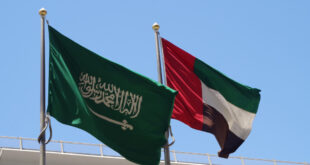Successive Palestinian-Israeli negotiations have always failed to reach a breakthrough because of one issue. Sure, borders and settlements and economic relations are important but the differences between both sides on those issues were not insurmountable. Refugees and the right of the return for Palestinians are perhaps the most difficult nuts to crack, but even these issues appeared to be near resolution in the Taba peace talks in 2000 when it came down to numbers of Palestinians who would return to Israel proper over a period of years. Palestinians would call it the implementation of the right of return while the Israelis would justify it as part of family reunifications, one of the universal human rights.
But Jerusalem is where the talks usually break down and specifically the status of the Old City of Jerusalem and the holy places in it. Theoretically, the lines were drawn by the international community. Although Israeli unilaterally annexed east Jerusalem, the entire world – even the US under Donald Trump – has never publicly recognized this annexation. While Israel considers the ‘unified’ city of Jerusalem a single entity that is the capital of Israel not to be touched, the Rabin-Peres governments accepted during the Oslo process to list it as one of five permanent status issues that are to be negotiated between Israel and the Palestine Liberation Organization (PLO). Palestinians demanded guarantees that the Israelis would make no changes to the status of the city and would respect its existing institutions; this was given in the form of a letter by President Bill Clinton’s secretary of state, Warren Christopher.
But despite all that, the Israelis reneged on promises and guarantees that have to do with Jerusalem. They closed down the Orient House, a think tank that was acting as a gathering place for Palestinian leaders. The East Jerusalem Chamber of Commerce also was closed down and some 350,000 Palestinians in Jerusalem became a stateless, leaderless population living day by day under the mercy of the Israeli government and its biased institutions. Palestinian Jerusalemites have been dealt with as residents whose rights to their own birthplace can be revoked simply by being away for a period of time or having political ideas that are unpleasing to the Israelis.
When Israel’s opposition leader Ariel Sharon, a nonreligious Zionist Jew, provocatively entered Al-Haram al-Sharif/Al Aqsa Mosque, in October 2000, Palestinians revolted and rejected his visit and its long-term meaning of exclusivity and a brazen attempt to change the status quo. The protests and the heavy-handed Israeli response to them led to the second, Al-Aqsa Intifada and many things have gone downhill since as Israeli governments have become more and more right-wing, radical and controlled by religious Zionists.
In the aftermath of the Palestinian protests a decision has been renewed in the Knesset every year since 2000 barring Israeli citizens and residents from granting residency rights to their spouses if they are from Israeli-occupied Palestinian areas. This denial of family reunification procedures is a basic human right that has left tens of thousands of couples stranded and in a legal black hole.
Palestinian activities that are connected in any way with the PLO leadership have been barred and any event that has the support or even the smell of being connected to the leadership in Ramallah is denied using the decades-old 1945 British Mandatory laws. A puppet show sponsored by the Palestinian Authority or a press conference about elections as mandated by the Oslo Accords are considered illegal and are physically banned by the Israel Police again using antiquated laws that are left on the books only to keep Palestinians from exercising their basic rights. The result is a city with hundreds of thousands of leaderless people without rights and the ability to express themselves in a proper, civilized way.
It is on this backdrop that one must understand the root of the problems that have engulfed Jerusalem, Palestine and Israel. After 54 years of living in this legal and political vacuum, Palestinians have risen up to say no. The specifics about Sheik Jarrah and Al-Aqsa Mosque protests will be debated for months and years, but it is this decision to shake off the unacceptable Israeli shackles and the demands that they are not willing to tolerate living this apartheid crime in which Israel has one rule for Jewish residents of the city and another one for Arab residents.
It doesn’t take a rocket scientist nor does it require the scrutiny of the hugely unbalanced budgets spent on one people and their homes and affairs while denying it to another people supposedly equal in rights and services in the city. A tour of the city’s neighborhoods is all that is required to see this discriminatory policy in plain sight.
This year’s calendar, which had the holy month of Ramadan coinciding with various Israeli national observances of political dates, was a sign that, unless managed properly, things will explode. The absence of a regular Israeli government and the presence of a right-wing settler as the head of Israeli security means that the only language Israel is speaking is that of security. No wonder things blew up. It isn’t as if anyone is surprised. The writing was on the UNESCO world heritage-protected walls of a city that doesn’t accept anyone to exclusively dominate it but insists that if you want to be part of this important city you need to share it rather than monopolize it.
 Eurasia Press & News
Eurasia Press & News


